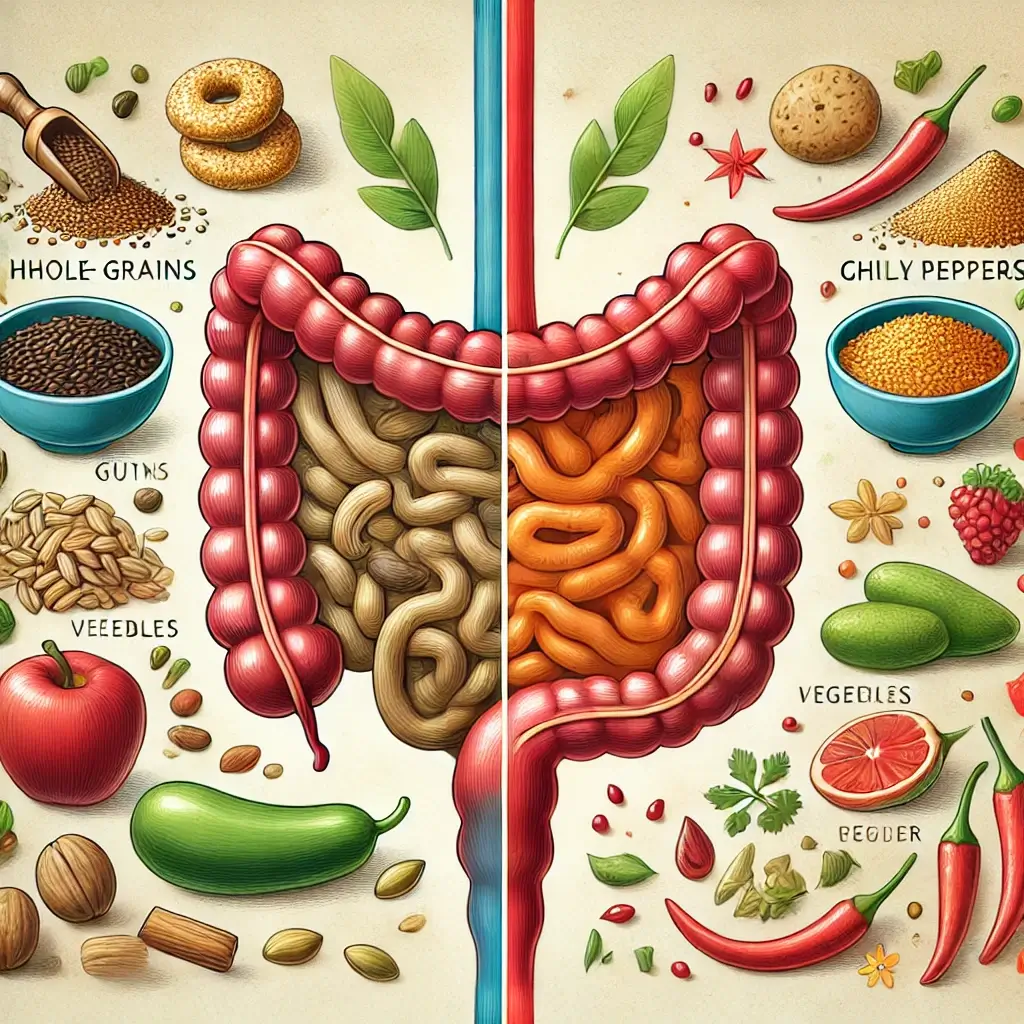From Fiber to Fats: Understanding Food Impacts on Crohn’s Disease Symptoms
High Fiber Foods and Crohn’s Disease
Some people with Crohn’s disease may have difficulty eating high-fiber foods, particularly during flare-ups. While fiber is generally good for gut health, insoluble fiber found in whole grains, raw vegetables, nuts, and seeds can be especially beneficial for people with an irritated digestive tract. This type of fiber passes through the gastrointestinal tract relatively intact, adding volume to the stool and helping to relieve constipation.
Benefits of Insoluble Fiber
Insoluble fiber can help soothe an inflammatory digestive tract by gently scraping away buildup and acting as a protective barrier. This is particularly beneficial for people with Crohn’s disease, ulcerative colitis, or irritable bowel syndrome. The insoluble nature of this fiber means it undergoes no substantial metabolic alterations, reducing the risk of further inflammation or discomfort.
Gradual Introduction of Fiber
It’s crucial to introduce and increase fiber gradually in the diet to avoid temporary discomfort such as bloating or gas. Individuals can slowly incorporate more whole grains, raw vegetables, nuts, and seeds into their diet, allowing their digestive system to adjust and benefit from this crucial nutritional component.
Impact of Greasy Foods
Greasy fried dishes, fatty meats, and processed foods are difficult to digest and can strain the digestive system, exacerbating Crohn’s symptoms such as abdominal pain, cramps, diarrhea, nausea, and vomiting.
Spicy Foods and Crohn’s Disease
Spicy meals can irritate the inflamed lining of the digestive tract in persons with Crohn’s disease, causing symptoms such as abdominal pain, cramps, diarrhea, and a burning sensation.
General Dietary Recommendations
During flare-ups, focus on easily digestible foods as part of a low-residue diet based on lean protein sources, refined carbs, and cooked and peeled fruits and vegetables. Keeping a food diary can help identify triggers, allowing you to adjust your diet accordingly.
Personalized Approach to Diet
Remember that there’s no one-size-fits-all approach to eating for Crohn’s disease. Work with a doctor or registered dietitian experienced in managing Crohn’s disease to develop a safe and successful food plan tailored to your unique needs and promote optimal disease management.
